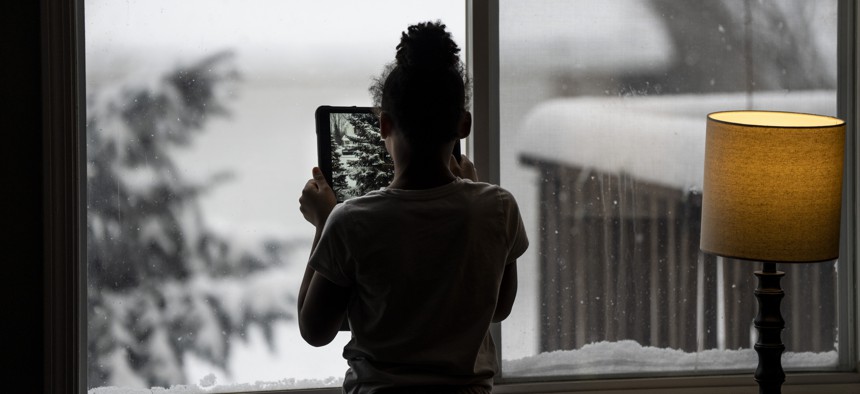FCC will start turning away hundreds of thousands seeking internet subsidies

The Affordable Connectivity Program, which is currently distributing $30 a month for internet services to nearly 23 million low-income families, is on track to run out of money at the end of April. Renee Jones Schneider/Star Tribune via Getty Images
The program serving 23 million low-income households will begin winding down this month. It is set to run out of money in April unless Congress can reach an agreement to increase funding.
Jessica Rosenworcel, chair of the Federal Communications Commission, wrote members of Congress this week to remind them that because of their inaction, the agency will have to start turning people away on Thursday from a hugely popular program that subsidizes broadband for low-income households.
According to FCC data examined by Route Fifty, hundreds of thousands of households around the country looking to sign up for the Affordable Connectivity Program, or ACP, could be rejected in the next month unless Congress can reach an agreement to increase funding.
The short-term spending bill passed Jan. 18 to avert a government shutdown did not increase funding for ACP, which is currently distributing $30 a month for internet services to nearly 23 million low-income families. As a result, the program is on track to run out of money at the end of April.
Because it is unclear whether the program will be renewed, the FCC required internet providers last week to notify people in the program that they may soon lose the assistance.
The exact number of households that will be turned away is unknown. But according to FCC data, households in the program increased by 7 million over a year, or by nearly half from 15.9 million on Jan. 30, 2023, to 22.9 million as of Thursday.
That’s an average of 586,738 households a month and about 11,720 households per state. More recently, the number has risen by 385,839 households in the January, 258,511 in December and 337,352 in November. But some months the numbers were much higher, rising by 632,950 households in May and 612,915 in July.
Cities, in particular, have been pushing hard for Congress to fund the program. Members of the National League of Cities advocated for the ACP when they were in Washington, D.C., this week to lobby members of Congress.
In addition, 174 mayors wrote Congress last month urging the body to fully fund the program, saying “the Affordable Connectivity Program has been a key tool in our efforts to eliminate the digital divide.”
Preserving the program does have the support of some in Congress, including Vermont Sen. Peter Welch, a Democrat. “The chairwoman’s notice of a freeze of the Affordable Connectivity Program should be a wakeup call,” he said in a statement to Route Fifty. “If we don’t act soon, the bipartisan progress we’ve made to build out high-speed internet and make it accessible will be gone.”
“In today’s digital age, a day without high-speed internet could mean you’re missing class, missing work or missing a doctor’s appointment,” he added.
“The Affordable Connectivity Program is connecting millions and millions of households across the country. The bipartisan infrastructure law created this program, our largest-ever effort to make broadband affordable nationwide, but we now are on the brink of letting that success slip away,” Rosenworcel said in a statement. “Disconnecting millions of families from their jobs, schools, markets and information is not the solution. We have come too far with the ACP to turn back.”
To pressure members of Congress, the FCC also released data showing the number of people in the program in each congressional district.
Kery Murakami is a senior reporter for Route Fifty, covering Congress and federal policy. He can be reached at kmurakami@govexec.com. Follow @Kery_Murakami
NEXT STORY: As privacy conversations become mainstream, data protection laws gain traction






